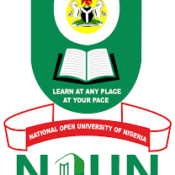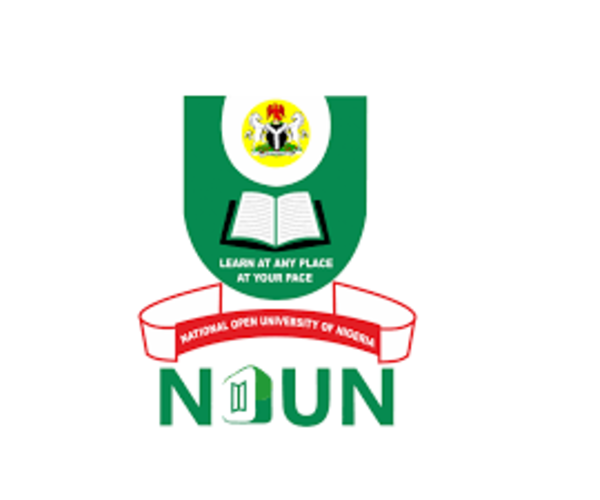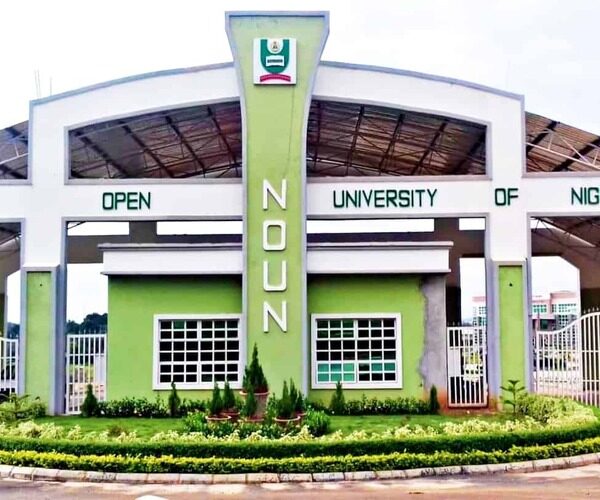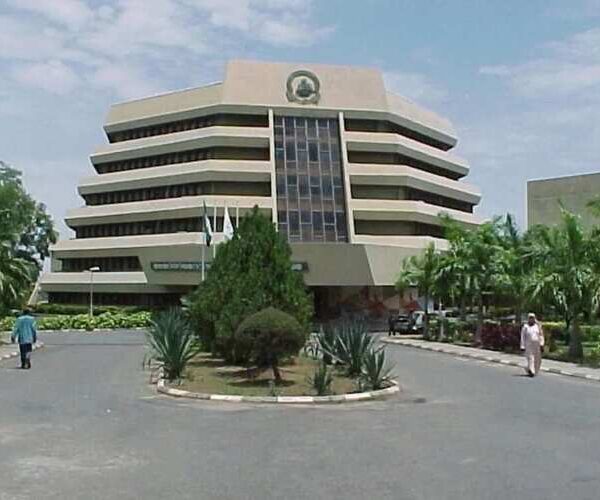
National Open University Of Nigeria
Historical Background of NOUN
The idea of an Open University for Nigeria was first muted by the National Universities Commission (NUC), the Nigerian government regulatory agency for all universities, in 1976. The NUC, then headed by Prof. Jubril Aminu as the Executive Secretary (1975-1979) sent a Memo to the Federal Military Government suggesting that an autonomous Open University be established for Nigeria during the Fourth National Development Plan (1981-1985). This was accepted by the Federal Government and subsequently, the idea made its appearance in the National Policy on Education in 1977. In Section Five Paragraphs 40, Sub-section A of the Policy, the Government declared that:
Maximum efforts will be made to enable those who can benefit from higher education to be given access to it. Such access may be through universities or correspondence courses, or open universities, or part-time and work-study programmes.
The Higher Education Division of the Federal Ministry of Education went to work on the process of creating an Open University and integrating it with the existing educational system in the country.
On assumption of leadership of Nigeria as the Civilian President in October 1979, Alhaji Shehu Shagari, immediately set up a Presidential Planning Committee on the Open University system to work out modalities for the establishment of an Open University for the country. Prof. Afolabi Ojo of the then University of Ife (now Obafemi Awolowo University, Ile-Ife) was appointed Chairman of the Committee on 14th April, 1980.
Other members of the Committee included Prof. A.E. Afigbo (UNN, Nsukka) and Dr. Aminu Orayi (ABU, Zaria) and Mr. E.C. Uzodinma, who served as secretary but was later replaced by Mr. Olamogoke.
The Presidential Planning Committee presented its report in October 1980. The report which included the draft Bill for the University was approved. The Open University of Nigeria Bill, after passing through all the necessary official processes, which included change of name to National Open
University, was finally ratified and signed into Law by President Shehu Shagari on 22nd July 1983 and was Gazetted on 27th July 1983, as the National Open University Act No. 6 of 1983, thus giving the University legal basis for its existence. It is this Law which governs the existence of the National Open University of Nigeria (NOUN) till today.
It is worthy of note that upon the establishment of the National Open University in 1983, the Government named Alhaji Aliyu Obaje, the Attah of Igala as the Chancellor; Alhaji Shuaibu Na’ibi, the Madakin Suleja as the Pro-Chancellor; Prof. Afolabi Ojo as the Vice-Chancellor and Alhaji H.A. Erubu as the Ag. Registrar.
However, it was sunset at dawn for the nascent university when unexpectedly, the Federal Military Government that succeeded the Civilian Government of Alhaji Shehu Shagari suspended the operation of the National Open University on 25th April, 1984.
The Resuscitation
But the compelling need for wider access to higher education for teeming Nigerians would not go away a decade and half after the suspension of the university, thus the idea of reviving the National Open University forcefully entered into the government political narrative with the coming of the Civilian Government headed by Chief Olusegun Obasanjo in 1999.
In 2002, the suspended National Open University Act of 1983 was reactivated, thus resuscitating the National Open University with Prof. Olugbemiro Jegede as the Vice-Chancellor. Prof. Jegede had earlier in 2001 been appointed as National Coordinator, National Open and Distance Education Programme by Chief Olusegun Obasanjo.
The National Open University of Nigeria (NOUN) as we have it today has become a leading ODL institution in Africa providing functional, flexible, accessible and cost-effective education for all who seek knowledge. It currently has 78 Study Centres spread across the six geo-political zones of the country. The current student population stands at over five hundred thousand.
As a faithful trustee of the Nigerian people, NOUN leverages on Information and Communication Technology (ICT) to deliver an education tailored towards the globalized economy. The University offers exceptional academic programmes that meet the specific needs of all sectors of the global economy, in the Arts; Health; Law; Physical, Social, Agricultural and Management Sciences.
As an ODL institution, NOUN is an equal opportunity university determined to meet the following objectives that necessitated the establishment of open and distance education in Nigeria:
- Provision of Education for All and promotion of lifelong learning
- Filling the gap created by the closure of outreaches/satellite campuses
- Cost effectiveness
- Improved economies of scale
- Flexibility of delivery system
- Maximum utilization of academic personnel
- On-the-job teacher training
- Poverty eradication, vocational and lifelong education
- Provision of non-formal education
- Reaching the unreached
- Propagation of national orientation
Faculties
- Faculty of Agricultural Sciences
- Faculty of Law
- Faculty of Arts
- Faculty of Management Sciences
- Faculty of Education
- Faculty of Science
- Faculty of Health Science
- Faculty of Social Science
List of Departments and Degree Programmes
- Agricultural Economics and Extension
- Hotel and Tourism Management – HTM
- Agricultural Economics and Agribusiness – AEA
- Agricultural Extension and Rural Development – ARD
- Animal Science and Fisheries
- Crop Science
- Soil Science
- Computer science
- Environmental Science
- Mathematics
- Physics
- Chemistry
- Biology
- English
- Linguistics, Foreign and Nigerian Languages
- Philosophy
- Religious Studies
- Educational Foundations Science Education
- Arts and Social Science Education (ASSE)
- Health and Human Kinetic
- Education Foundation
- Library and Information Science
- English, Department of Linguistics, Foreign and Nigerian Languages, Department of Philosophy, and Department of Religious Studies.
Students Requirements
A diverse range of students from all walks of life are attracted to the university, similar to other Open Universities such as the Open University in the United Kingdom. For most courses there are no stringent entry requirements other than the ability to study at an appropriate level such as the West African Examination, and other national diplomas to qualify for direct entry admission. Most postgraduate courses require evidence of previous study or equivalent life experience. This fundamental open admissions policy makes undergraduate university study accessible to all.
Undergraduates
While most of those studying are mature students, an increasingly large proportion of new undergraduates are aged between 17 and 25. The reduction in financial support for those attending traditional universities, coupled with the use of technologies such as YouTube that appeal to this demographic, is believed to be behind this growth.
School of Postgraduate Studies
The school seeks to address Nigeria’s increasing need for highly specialized knowledge and skill development in order to help the country contribute to the worldwide knowledge economy
Immunity to Strikes
The Act of Parliament which established the university prohibits any form of union for staff or for students. This has made the university unaffected by strikes such as the ASUU strikes (which lasted for eight months), which have the effect of extending the duration of students’ studies.
National Youths Service Corps
The NOUN has made efforts to ensure its graduates below age 30 (the maximum age limit) participate in the National Youth Service Corps (NYSC)
Alumni
Beverly Osu, actress, model and video vixen
Technological platforms
Media centre building
The iLearn portal provides students with access to the university’s learning resources, including:
- Online class discussions organized by NOUN facilitators, creating a virtual classroom environment.
- Academic support for students
- Social networking and collaboration tools to facilitate interactions among students, facilitators, academic staff and faculty members.
- Study tools such as the digitized video and audio materials
- Access to assignments, quizzes and self-study assessment tools
Examination
The university uses computer-based test (CBT) for first and second year students, except for law undergraduates who sit conventional pen-on-paper (POP) from their first year of admission. POP examinations are used for all students after the second year, and for postgraduate students.
The CBT examinations have two formats: multiple choice questions and fill in the gap questions. The Computer Base Test (CBT) system been criticised by some students, who say that the system requires students to memorize their textbooks and produce answers that match those stored on the school’s computers
Assessment
Tutor-marked assignments (TMAs) are continuous assessments(C.A) that accounts for 30% of a student’s total score. Students are expected to answer all TMAs, which must be answered and submitted before students sit for the end of course examination. The end of course examinations account for the other 70% of a student’s score.
Facilities
E-library
The NOUN operates an e-library at the headquarters situated at Victoria Island, Lagos, Nigeria which all students have access to after providing a valid student’s identity card. Students have access to both Internet facilities, books, journals, projects, theses of past students and other educational materials.
Radio Station
The NOUN FM radio station] broadcasts on workdays and provides opportunities for Mass Communication students
E-courseware
The NOUN also provides a platform for students that needs to access its database of educational materials NOUN e-Courseware Free Download strictly for educational purposes rather than financial or commercial purposes. Books can be downloaded in PDF formats at no cost.
Scholarships
In May 2014, the Nollywood movie star Ini Edo made headlines when she was offered a scholarship to study law at the university. Other actresses and actors including Desmond Elliot[44] have also been offered scholarships. Chioma Chukwuka-Akpotha, Francis Duru, Doris Simeon and Sani Danja were announced as ambassadors for the NOUN. All four were presented by the Vice Chancellor Prof. Vincent A. Tenebe, with scholarships to study their courses of choice.
Business Amenities
- Car Parking
- Funding: Federal
Tags
Contact Information
Opening Hours
Contact Business
Contact Business
Additional Information
Additional info








